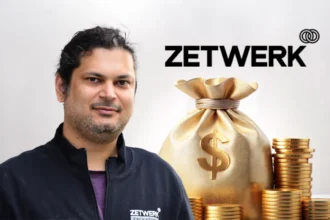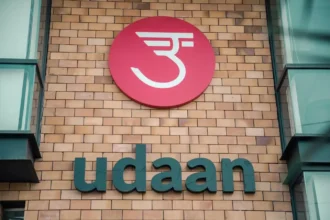Parker, a startup that provides corporate credit cards for e-commerce businesses, has come out of stealth with $157 million in equity and debt funding, a significant portion of which was secured in 2022. Positioned as “the first charge card for e-commerce,” Parker’s credit limits are on average 10 to 20 times higher than those offered by traditional business credit cards like CapitalOne, American Express, and Brex.
The company’s founders, Yacine Sibous and Milan Ray, were originally focused on computing but transitioned to e-commerce after encountering financial challenges in that space. Parker, which was part of Y Combinator’s winter 2019 cohort, serves middle-market companies with annual sales of $3 million to $100 million.
The startup’s underwriting process evaluates cash flow to determine credit limits that are appropriate for each business, with credit limits reaching as high as $10 million, according to CEO Sibous.
Parker also offers payment terms that are tailored for e-commerce, including net terms on every transaction, allowing customers to delay payment until a later date.
According to Sibous, the way credit card statements work has been fundamentally altered by Parker. Instead of the traditional monthly statement, daily or weekly statements are now an option. This modification greatly benefits the brands by improving their cash flow.
Sibous believes that despite competition from venture-backed companies such as Moss and Emburse, Parker has a good chance to succeed in the crowded credit card market. Additionally, corporate card providers like Brex, American Express, and Ramp have a broader reach and don’t cater to the specific needs of particular industries like Parker does.
Having experienced difficulties with using other cards for their own business, Sibous and the team recognized an unmet need in the market. Drawing on their fintech and e-commerce startup experience, they were well-equipped to address the issue.
Parker generates revenue through interchange and transaction fees, having surpassed $300 million in transaction volume since its inception. According to Sibous, the company has a run rate of nearly half a billion dollars. Parker serves a variety of customers, including Amour Vert, Italic, SpikeBall, Canopy, and Caraway.
Having graduated from Y Combinator, Parker began raising venture capital and has now announced all of its previously unannounced funding, including $31.1 million in Series A funding led by Valar Ventures, $5.9 million in seed funding, and $70 million in debt. This debt consists of venture debt from Triple Point Capital and warehouse debt from Jefferies, which includes an option to upsize by $50 million. Andrew McCormack of Valar Ventures stated that Parker has identified a significant opportunity as a large segment of e-commerce has been underserved by traditional banks, startup cards, and merchant cash advance companies. Parker has demonstrated strong product-market fit among companies that require flexible financing terms and innovative underwriting to achieve success and unlock growth.
According to Sibous, Parker has maintained a solid runway through the pandemic and is preparing to expand across the country this year. The funding will be used for research and development across product, engineering, and go-to-market efforts. Parker is also striving for profitability and plans to scale to access cheaper capital costs and upsell other products. However, Sibous noted that there is a path to profitability for just the card business. Parker aims to become the go-to card for profitable e-commerce brands seeking to scale, providing the best-in-class card experience and solving the challenges of cash flow, management, and profitability. Once this goal is achieved, Parker will consider expanding its product lines to include other financial products that these brands may need.















